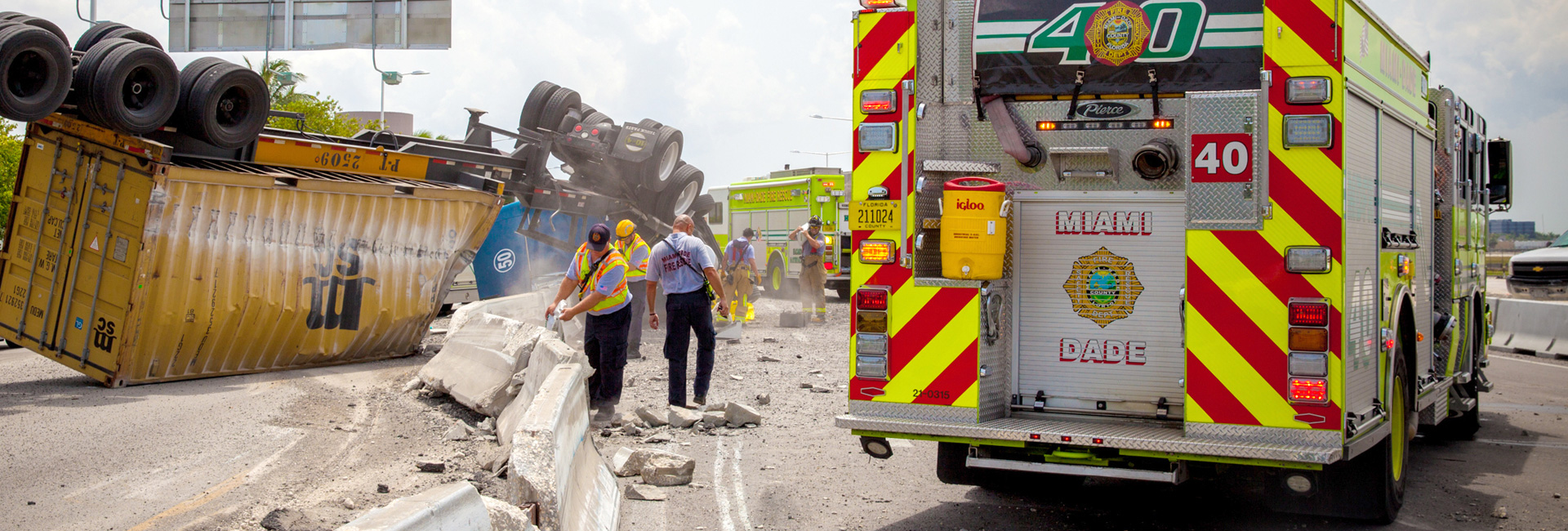Safety Tips: Mobile Homes
There are many benefits to living in mobile homes, but residents should be aware of some safety concerns unique to these structures. While they are vulnerable to all the same hazards found in permanent structures, mobile homes are built of lighter materials and they are not fixed to the ground with the equal reinforcements.
According to statistics, three times as many people die in mobile home fires than in permanent single and two-family home fires. For every 1,000 fires that occur, 21 victims will die in mobile homes while fewer than seven will die in other permanent single-family structures.
The primary cause for the increase is that fire spreads more rapidly through mobile homes due to the small space and light construction, while the structure itself intensifies the heat and smoke buildup. In addition, most mobile homes have fewer safe exits than a traditional home.
Electrical system malfunctions and heating fires are the leading causes of fire in mobile homes. Electrical distribution fires occur nearly twice as often in mobile homes as in one and two-family permanent dwellings.
The federal government regulates the construction of mobile homes. Since 1976, manufacturers of these dwellings have been required to comply with U.S. Department of Housing and Urban Development (HUD) safety standards, which cover a wide range of safety requirements, including fire safety.
Today, new construction of mobile housing is required to contain factory-installed, hard-wired, interconnected smoke alarms with battery back-up (including alarms inside all rooms designated as sleeping areas). Here are some additional tips:
- Early warning of fire is crucial. Have a minimum of two smoke alarms installed, regardless of sleeping arrangements. Test smoke alarms monthly and replace the batteries at least once a year.
- Maintain the cooling/heating system by having it professionally inspected on a regular basis.
- Never overload outlets, extension cords or electrical circuits. If the circuit breaker trips or fuses blow, immediately call a licensed electrician.
- Space heaters need their space! Since there is a limited supply of space in mobile homes, be certain that portable space heaters are placed well away from drapes, clothing or other combustible materials.
- Determine ahead of time how you will get out in case of a fire. Develop an escape plan which includes alternate exits from every room. Make sure you can open and get out of windows and doors.
- If there is a fire, get out immediately and call 911 from outside. A mobile home can become fully engulfed in flames and smoke within minutes.
- If you are in the market to purchase or rent a mobile home, select one built after 1976 that bears the HUD label certifying compliance with safety standards.
In addition to fire safety issues, mobile homes are extremely vulnerable during windstorms such as hurricanes and tornados. They are considered unsafe structures in all categories of hurricanes and in some tropical storms as well.
Keep an eye on weather systems that will potentially threaten our area, especially during hurricane season. Make sure you have an evacuation plan in place which includes a safe place to stay and food, water, and supplies to last at least three days.
Remember that mobile homes are an evacuation group of their own, regardless of whether or not they are located in one of the three designated evacuation zones in Miami-Dade.
Emergency managers sometimes call for evacuation of mobile homes, without evacuating any of the zones, so monitor your local news during all major storms for information specifically directed toward mobile home residents.

Fire Rescue
Raied "Ray" Jadallah
R. David Paulison Fire Rescue Headquarters
9300 NW 41st Street,
Miami, FL 33178-2414
786-331-5000

